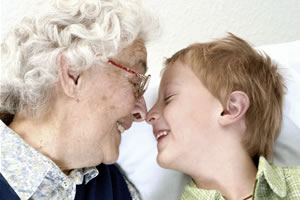Why Join a Support Group?

You may be resisting the idea of joining a support group, but it's one of the most common and effective ways of dealing with a difficult period in your life. While you certainly have some joys along this caregiving journey, it also takes its toll on your mind, your strength, your body, and your spiritual well-being. When you join a support group, you may find a wealth of information, help, and caring you never thought you'd experience. There are many reasons to join:
- Increase your sense of well-being. When you join a support group, you can much more easily “take a load off.” You can be unburdened for an hour while a friend or family member cares for your loved one, and take some much-needed time to focus on yourself. Not only do you deserve it, you need it!
- Share recommendations of doctors, organizations, medical breakthroughs or community resources. Often, a support group leader will provide updates on the latest medical breakthroughs as far as clinical trials, drugs, and new discoveries that are being made in the area of Alzheimer's research. Other members will be able to tell you if they visited a doctor they particularly liked, have an adult day care center that their loved one is very happy in, worked with an attorney who got their loved one's financial house in order, or have used other resources in the community that can be difficult to navigate without word-of-mouth recommendations.
- Find that you are not alone. In the right support group, you will have a sense not only of friendship, but of a bigger picture: you are not the only one with an Alzheimer's-afflicted loved one, and other people like you understand what you are going through. There is nothing better than the sense of validation you will feel when you hear stories like yours being shared. Especially if you're caregiving from your home, you might feel a sense of isolation - especially if excursions out of the house are particularly difficult with your loved one. In a support group, you can relate to others like yourself and have a sense of community.
- Share your accomplishments, trials, laughs, and tears and big decisions along the way. Whether you've just gotten a diagnosis for your loved one and are having trouble coping, or trying to decide whether or not it's the right time to move your loved one to a nursing home, you will have a group of people that you can bounce your thoughts off of. Hear different opinions, talk about options, or just tell a funny story you and your loved one experienced recently that only another Alzheimer's caregiver would understand.
You might be able to find a support group for both you and your loved one – there are some support groups where early-onset Alzheimer's patients meet and discuss their lives across the hall from where their caregivers meet. This allows you and your loved one to freely discuss the experiences you deal with on a daily basis. If you're having trouble finding a group like this, or have visited a group or two that you're not sure about, why not try starting your own? It doesn't have to be a very structured environment, but get together with some other people you know who are on the caregiving journey and relate your experiences.





 Alzheimer's Hope Forum & Message Boards
Alzheimer's Hope Forum & Message Boards